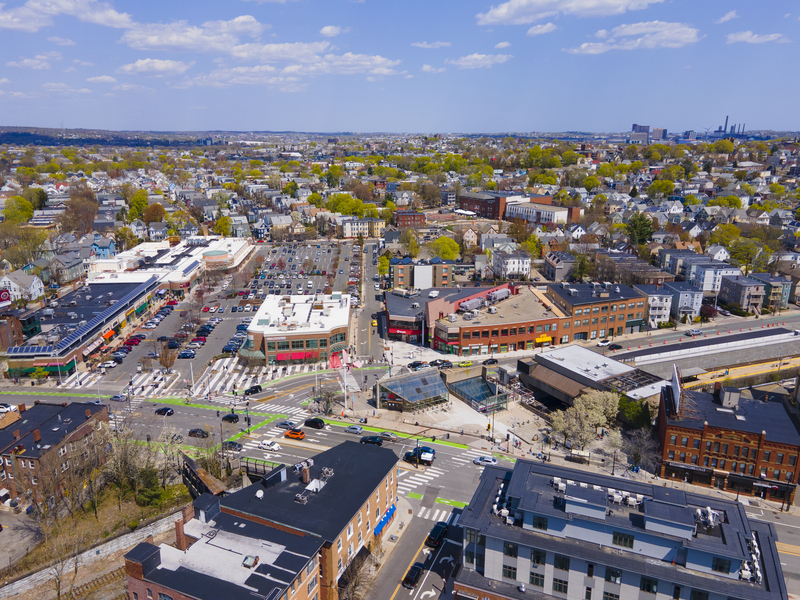
Photo: Jiawangkun | Dreamstime.com
Massachusetts city adopts 2035 net zero mandate for large buildings
18 July 2023
by Sarah Wray
Cambridge, Massachusetts has updated an ordinance to require that non-residential buildings larger than 100,000 square feet achieve net zero emissions by 2035. Mid-size non-residential buildings over 25,000 square feet must do the same by 2050.
The municipality said the regulations were “historic”, claiming to be “the first known city in the country” to establish such a mandate.
Buildings account for almost 40 percent of United States greenhouse gas emissions. Other cities have passed laws requiring net zero emissions for certain buildings, but typically with a deadline of 2050.
The Building Energy Use Disclosure Ordinance (BEUDO) was first passed in 2014 and requires energy and water reporting from commercial properties over 25,000 square feet and residential properties over 50 units.
Cambridge estimates that the amendments will cut BEUDO emissions 50 percent by 2030, compared to today, and 70 percent by 2035.
Challenges
A statement from the city said: “This ongoing, coordinated effort to reduce the worst impacts of climate change and slow the pace of global warming will include greening the electrical grid as well as building energy efficiency and transitioning from fossil fuel use to electricity, geothermal or other renewable energy sources.”
The amendment passed after over two years of stakeholder engagement, with some questioning the feasibility of achieving the 2035 goal due to constraints related to the grid, technology, onsite renewable energy, and workforce development.
“The city is committed to supporting Cambridge property owners with robust technical assistance and connections to incentives and moving forward together with this challenging yet absolutely critical work,” the city’s statement said.
Large building-owners can purchase verified carbon credits to offset limited amounts of emissions until 2050.
New benchmark
Kevin Chen, an Associate specialising in energy and environmental matters at law firm Foley Hoag LLP, said in an article: “The BEUDO amendment sets one of the most ambitious municipal net zero building targets in the country and establishes a new benchmark for climate-focused cities – yet questions remain as to whether these goals can actually be achieved.”
He added: “It remains to be seen whether the BEUDO amendment signals a broader trend among local governments to push for ambitious emissions building reductions.
“Further, Massachusetts could set its own state-level standards for the building sector, potentially pre-empting local ordinances.”






